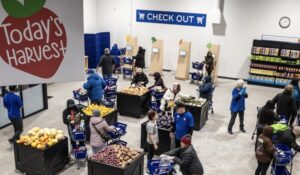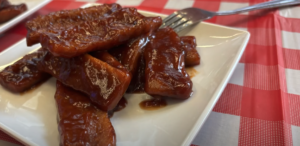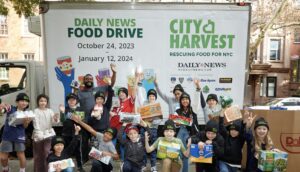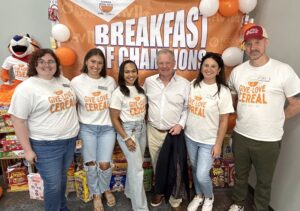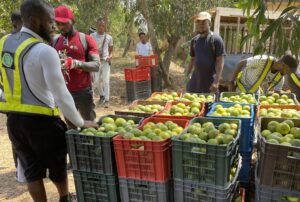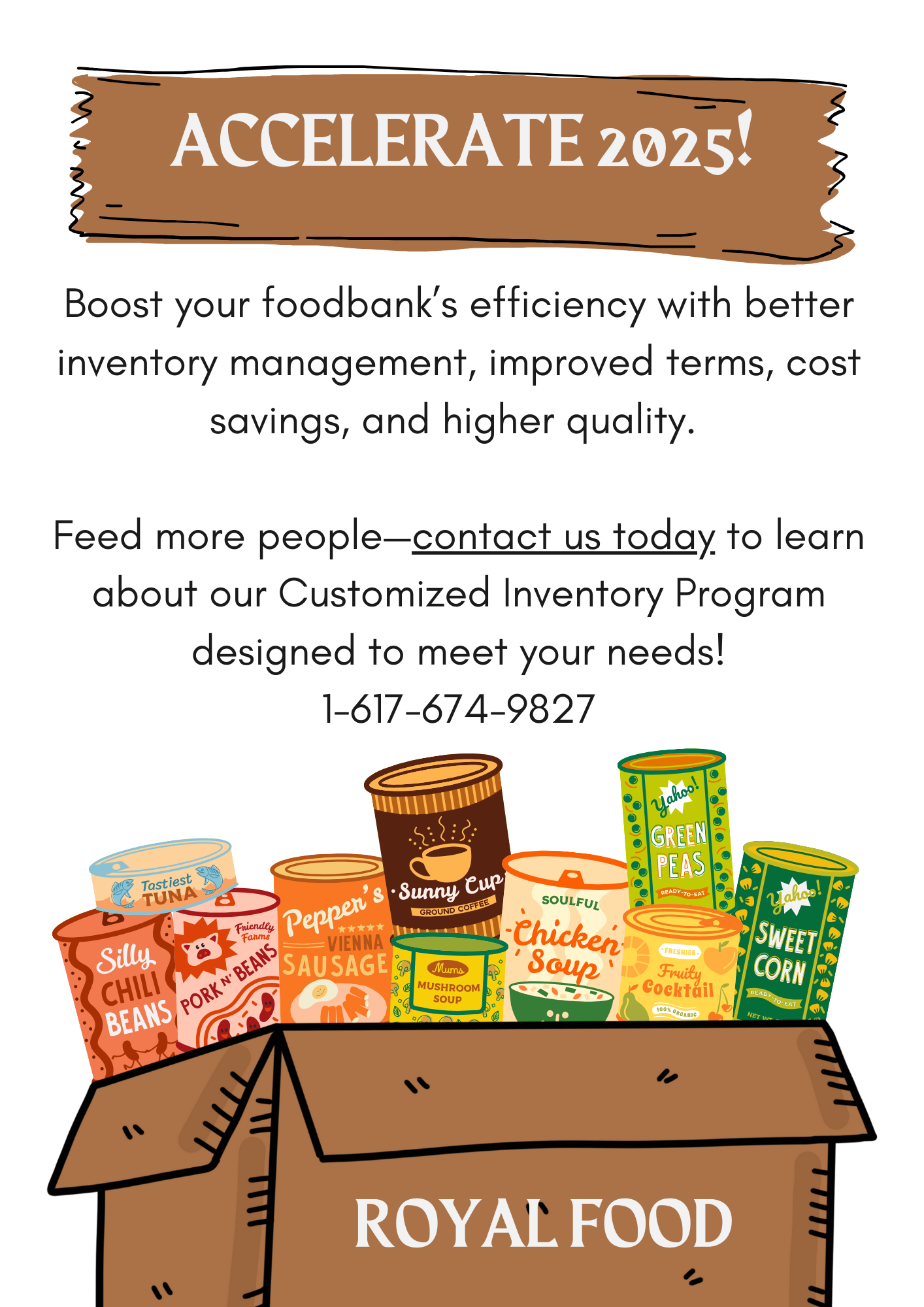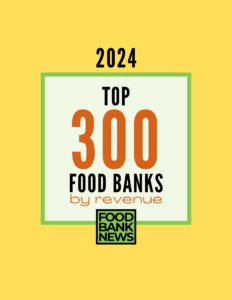The idea of rescuing surplus produce from farms and bringing it to food banks is not a new one, but it usually happens on a local level. The Farmlink Project is taking the practice national.
Started in 2020 by a group of college students, Farmlink has activated a nationwide network of student volunteers to fix the food supply chain issues in the U.S. by targeting the massive amount of food that goes to waste on U.S. farms each year and delivering some of it to food banks and pantries facing shortages. Since its start, the project has delivered more than 80 million pounds of food in 48 states through collaborations with 190 farms and 266 hunger relief organizations.
“We are building relationships with growers, shippers, and distributors across the country,” said Ben Collier, CEO, and Co-founder of Farmlink Project. The organization has also raised about $10 million in funds and provided more than $4 million in economic relief to farmers and truckers. This year, the nonprofit expanded internationally by starting food rescues in Mexico.

The team at Farmlink Project, which started out by cold-calling farmers, prefers a direct approach. “We focus on long produce or even products with a short shelf life that might be of value to someone else,” explained Collier. “We then find potential recipients. If these people can arrange transport, great. If they cannot, we coordinate the delivery.”
In addition to linking farms and food banks, the organization also evens out supply between food banks that have more food than they can handle or have a product that another food bank needs. In Southern Arizona, for example, when an influx of millions of pounds of food comes from Central South America during the winter, Farmlink helps to distribute it elsewhere. During summers, when supply dries up, Farmlink brings in deliveries from other states.
Like many entrepreneurial projects, this one had its start in the pandemic. In April 2020, with the country engulfed in confusion and chaos, “no food was needed at the restaurants, airports, theme parks, everywhere,” Collier said. “Yet, at the same time, food bank lines were longer than they had been in decades. This juxtaposition was too powerful.”
Collier and his twin brother Will, along with the other two founders, Aidan Reilly and James Kanoff, brainstormed solutions to address the “juxtaposition.” Over 200 calls to different farms followed as they tried to understand the situation and explore avenues to alleviate it.
An early collaboration resulted in the delivery of 10,800 eggs from a farm to a food bank. “We also delivered this truckload of onions,” Collier noted. “There was this farmer who had two million pounds of onions sitting at his farm in the Pacific Northwest. We picked up 50,000 pounds of those and got it delivered to L.A. And that was the start of Farmlink.”
Several corporate collaborations have contributed to Farmlink’s success. Uber, for example, helped with transportation in the early stages. Chipotle is another major collaborator. “Chipotle has been the most consistent partner,” Collier said. “If you order on the app, you can round up your delivery amount, and that slight round-up amount is donated to the project. It has not only helped us raise money, but also awareness.”
Farmlink also benefits from its youthful volunteer force. After initially reaching out to friends and family, the founders turned to social media, posting volunteer requirements online. According to its most recent annual report, the organization has looped in hundreds of volunteers from 93 universities and sent 550,000 slack messages.
“Having such a young and open-minded community of doers has been one of the catalysts for the success of Farmlink,” Collier said. “Very early on, we got a group of young people willing to do their best.”
Collier also noted that having an infusion of young people in industries like agriculture, transportation, logistics and food banking, where the median age is high, can prove beneficial. “Especially in these industries that have functioned so long like this, it’s important,” he said.
Though focused on hunger relief, Farmlink is also directly addressing the climate crisis, stemming from its awareness that each pound of food sent to a landfill contributes to greenhouse emissions. Through its Carbonlink carbon offset program, organizations can quantify their CO2 emissions and purchase credits that go toward projects that reduce emissions and improve the food system. So far, the project has prevented more than 26 million pounds of CO2e (carbon equivalent in methane) emissions through food rescue.
Farmlink is now seeking to expand its network through more collaborations, grant funding and government opportunities. “This project has been life-changing,” Collier said. “I am glad to be doing this. We started small, and we learned.”
He added, “In the hunger relief space, if you’re working on going out of business one day, you must take an open-minded approach. We are trying to shorten the line while feeding the line.” – Aryan Rai
Aryan Rai is a reporter for Food Bank News and a graduate student at Boston University.
PHOTO, TOP: Student volunteers for The Farmlink Project manning a delivery truck.
Like what you’re reading?
Support Food Bank News
This article was made possible by the readers who support Food Bank News, a national, editorially independent, nonprofit media organization. Food Bank News is not funded by any government agencies, nor is it part of a larger association or corporation. Your support helps ensure our continued solutions-oriented coverage of best practices in hunger relief. Thank you!

